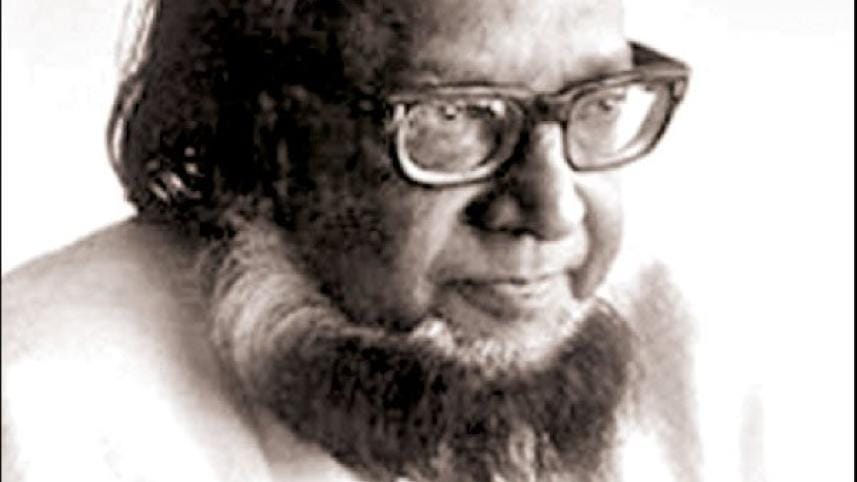20th Death Anniversary of Syed Ali Ahsan: Life and work of a great intellectual

Prof Syed Ali Ahsan was by far the top intellectual, poet and educationist in Bangladesh in the second half of the past century. He was born on March 26, 1920 in a Sufi family of Alokdia (Magura), and died in the early hours of July 25, 2002, in his Kalabagan residence in Dhaka.
As the vice-chancellor of three universities, professor in three other universities, chairman of the University Grants Commission (UGC), and an education minister, Syed Ali Ahsan influenced his contemporaries with his unparalleled speech and writings. He was a voracious reader of world literature, and a writer of many well-read books.
At one point, Syed Ali Ahsan was a poet sans comparison. During the 40s, there were four extraordinary poets among the Bangle Muslims: Farrukh Ahmad, Abul Hussain, Ahsan Habib and Syed Ali Ahsan. Initially an Islamic conservative like Farrukh Ahmad, Ali Ahsan later on transformed himself into a Westernised modern poet. His Ekok Sandyay Boshonto, Sohosha Sochokito, Uchcharon, Amar Protidiner Shobdo, and Samudre Jabo contain many verses of lasting interests. Here, we quote a short poem translated by Pritish Nandy:
Handful
You were suddenly gorgeous
When you had disrobed,
There is noble richness in the body
The many greens of desire,
The sweet moist darkness of the monsoon
Or a crow's feather,
I took fire into both my hands
Or it may have been the sun
On the sea in the arteries
On bouquets of flowers,
If only you could be like this
Always, all the time.
During the mid-60s, poet Ahsan created a sensation among the young generation with his trio-poem My East Bengal (I,II, III), evoking
(a) A wonderful cold river!
(b) A bunch of charming tomal tree in the darkness
(c) The sound of the rain on the tree leaves in the depth of night
Likewise, he alerted the West Bengal intellectuals with his poem, which concludes with the phrase "Amar protidiner shobdo" (Words of my daily use). Here, he cursed those who brought along a genocide in 1971.
After liberation, he was officially asked to translate into English our national anthem. Much later, he was invited by the Swedish Nobel Prize Committee to recommend a name for the Nobel Prize in literature.
Syed Ali Ahsan was also a very good prose writer. He wrote several short stories, one novel and many autobiographical essays. Besides a lot of philosophical articles, he even wrote a book on cooking. He was also good at cooking, particularly French and Chinese cuisines. Besides, he wrote two books on art. For quite a long time, he taught at the Faculty of Fine Arts at Dhaka University.
Prof Ahsan was, above all, a moralist – if one considers his essays and lectures. As a rare genius – an expert in old Hindi – he was honoured by Indian Prime Minister Indira Gandhi in 1975.
Professor Ahsan organised two Asian poetry festivals in Dhaka. In the last festival, British Poet-Laureate Ted Hughes participated along with several other poets from around the world.
Prof Ali Ahsan was also the founder and president of PEN Bangladesh.
On the 20th death anniversary of this literary genius, I remember him with great reverence and wish him eternal peace in the world of no return.
Prof Mahmud Shah Qureshi is a Bangladeshi scholar. He has been honoured with numerous accolades, including Ekushey Padak and France's Legion d'Honneur.



 For all latest news, follow The Daily Star's Google News channel.
For all latest news, follow The Daily Star's Google News channel. 
Comments